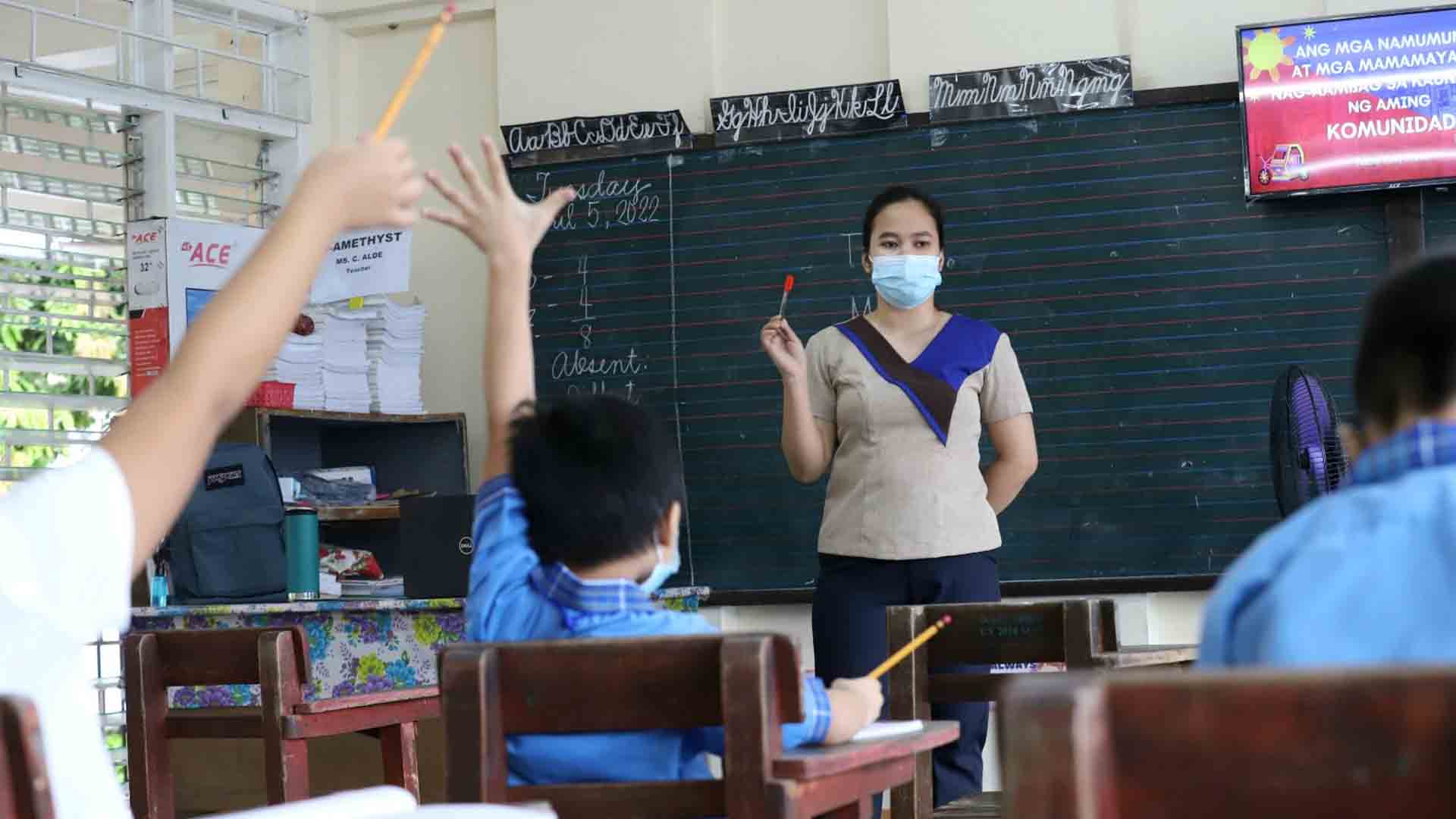The Department of Education (DepEd) on Tuesday launched the BIDA Kid Campaign in Pasay City to ensure the safe resumption of in-person classes in the country.
In partnership with the Department of Health, the United States Agency for International Development (USAID), and other stakeholders, the campaign encourages learners and educators to participate in vaccination, practice shared action and collaboration, and observe health protocols as they go back to their classrooms.
BIDA stands for “Best friend natin ang mask, Ingatan at hugasan ang kamay, Dumistansya muna, Airflow ay panatilihin (Face mask is our best friend, washing of hands, physical distancing, and sustaining air flow).”
DepEd Assistant Secretary Malcolm Garma said they are pushing for the expansion of in-person classes to help contribute in the learners’ cognitive and social development.
“We gradually remove the word ‘limited’ in face-to-face classes because we would not like to attribute the-face-to-face classes [to] something limited, so inaalis na po natin ngayon ‘yung (we are now removing) limited. So we are now attributing our going back to the school as face-to-face classes, but a progressive one,” he said.
Health Secretary Francisco Duque III said that the increased vaccination rates among educators and learners have contributed to the actualization of face-to-face classes.
“Due to increasing Covid-19 vaccination coverage, and adherence to safety protocols, we have now reached a point where we can safely reopen schools to provide children with optimal learning opportunities that face-to-face classes are bringing,” Duque said.
To date, a total of 5,779,534 learners have been vaccinated against Covid-19, while over 90 percent of teaching and non-teaching personnel have been also inoculated according to the DepEd.
Meanwhile, USAID Mission Director to the Philippines, Pacific Islands, and Cambodia Ryan Washburn said the BIDA campaign is a vital leap to address common problems brought by the pandemic to learners in other countries like learning gaps, mental health problems, child labor, teenage pregnancy, and increased dropouts.
He said that such preventive policies and slogans will help sustain an education setup beneficial to learners, and to the economic recovery, as he assured US’ continued support to the country.
“To date, the United States has provided more than PHP1.9-billion to address the Covid-19 pandemic in the Philippines and support the government’s effort to deploy vaccines in high-risk areas. In the education sector, USAID has been supporting the Department of Education to improve education outcomes through its basic education continuity plans, particularly in the early grades,” he said. (PNA)







